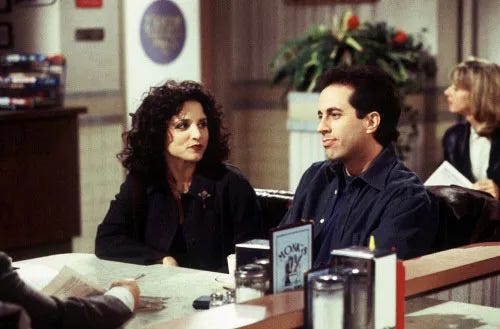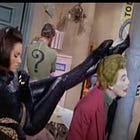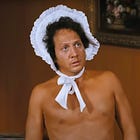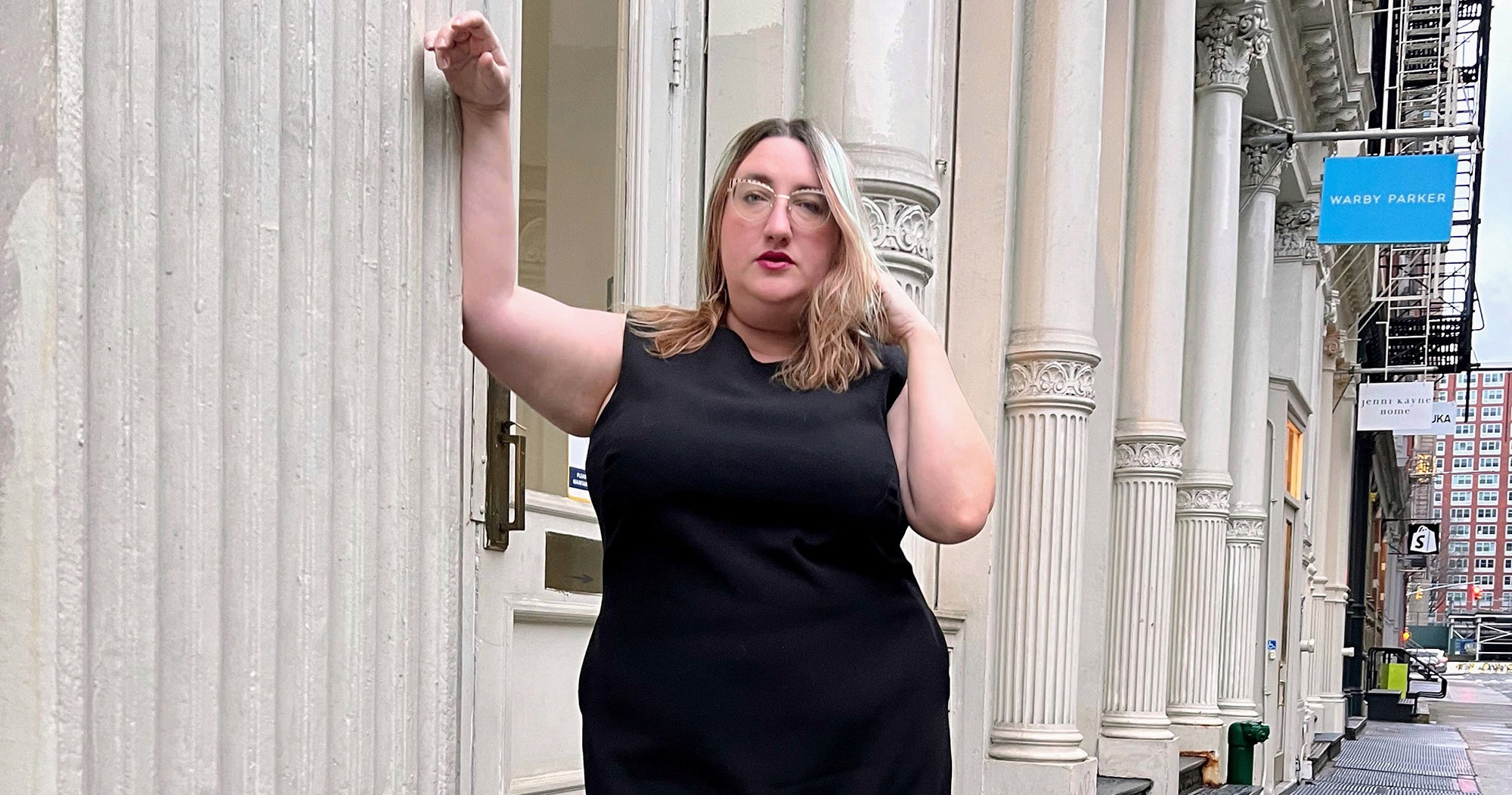Every so often, we go through a wave of mostly male comedians complaining about “woke” and complaining about “political correctness” and going on and on about what “couldn’t be made today” (certainly A Take in this, the time of reboots).
In recent years, Jerry Seinfeld has grumpily been a part of every one of them — which is actually pretty weird because, for the most part, the things he’s complaining about mostly do not even apply to him, a guy who mostly made jokes about airplane food. He’s out here complaining about how he misses “dominant masculinity” and the concept of “a real man,” when he was never “even that guy” to begin with. In fact, I bet you that if we looked hard enough, we could find some Real Men (TM) complaining about him back in the 1990s. Because guess what? There has literally never been a time when men were not endlessly complaining about the loss of masculinity.
Then there’s Julia Louis-Dreyfus, who has inarguably had a stronger and more diverse post-”Seinfeld” career than he has, and who has a far more nuanced take on things.
In an interview with Lulu Garcia-Navarro published in The New York Times this weekend, Louis-Dreyfus was asked to weigh in on some of Seinfeld’s recent comments about comedy being cruelly murdered by “political correctness.”
If you look back on comedy and drama both, let’s say 30 years ago, through the lens of today, you might find bits and pieces that don’t age well. And I think to have an antenna about sensitivities is not a bad thing. It doesn’t mean that all comedy goes out the window as a result. When I hear people starting to complain about political correctness — and I understand why people might push back on it — but to me that’s a red flag, because it sometimes means something else. I believe being aware of certain sensitivities is not a bad thing. I don’t know how else to say it.
Wow, that sure was a well-reasoned and reality-based take. The fact is, there’s not really any point in time where you can go from one point to 30 years before and go “Yes, all of the comedy from this era has aged perfectly, 10/10 no notes.” You couldn’t do that in the 1990s with comedy from the 1960s and you can’t do it now with comedy from the 1990s. I’d say that’s a good thing! It doesn’t mean it’s all bad, it just means that society has evolved.
And she’s not wrong: it is a red flag and it does, often, mean something else.
The impetus for the interview was Louis-Dreyfus’s newest movie, Tuesday, a drama about a mother who struggles with her daughter’s terminal illness. Unlike Seinfeld, her career has evolved and changed throughout the years. She’s diversified. She did a more traditional sitcom with “The New Adventures of Old Christine,” she did a prestige HBO comedy with “Veep,” and now she’s doing dramas.
“I just want to try it all,” she told The New York Times. “It’s good for my brain.”
Eleven days after the first interview, Louis-Dreyfus came back to the question of “political correctness,” explaining that she thought that the real threat to art was not tolerance, which she believes is “fantastic,” but rather the “consolidation of money and power.
“All this siloing of studios and outlets and streamers and distributors — I don’t think it’s good for the creative voice. So that’s what I want to say in terms of the threat to art,” she said.
Garcia-Navarro then asked her if she thinks “it makes comedy better, that people are now more attuned to how some of their comments might be received?”
I can’t judge if it’s better or not. I just know that the lens through which we create art today — and I’m not going to just specify it to comedy, it’s also drama — it’s a different lens. It really is. Even classically wonderful, indisputably great films from the past are riddled with attitudes that today would not be acceptable. So I think it’s just good to be vigilant. I mean, pretend this show, your show, “The Interview,” was being made 40 years ago. I would posit that diversity would not be something you would be considering in terms of the guests that you would bring to the show. So that’s interesting, isn’t it? I mean, things have shifted. And in that case, I would say, things have shifted very much for the good. And also, actually, Lulu, probably you wouldn’t be the host.
The interview with Garcia-Navarro ended with Louis-Dreyfus saying that “there’s always room to learn more, and for me, that is an incredibly joyful adventure,” with regards to her comedy.
And that’s kind of the key, isn’t it?
Recently, I found myself briefly stuck in a late-night bar conversation with a guy who said he was “super liberal” but didn’t get “the 72 genders thing.” And every time I started calmly trying to explain that there is a difference between sex and gender, that gender exists on a spectrum and that people are just kind of figuring out what works for them in terms of how they identify on that, he’d demand to know exactly how many genders there were. Because it wasn’t a real curiosity thing, it was supposed to be a gotcha, it was supposed to be an own. I wasn’t supposed to have an answer and so any answer I did have wasn’t going to satisfy him.
Also, let’s be real — anyone who is ever “just asking questions” has the same ability to Google as the rest of us. If they were truly curious, if they really wanted to know about a particular topic, they would read a book about it or read some articles on it. They wouldn’t just ask a random feminist lady about it in a bar at 2:30 a.m.
It seems like the biggest, most glaring difference between the comedians who complain about “political correctness” and the ones who don’t is that the ones who do are still trying to do the same bits they did 30 years ago. They don’t evolve, they don’t try new things, and they’re not excited about learning. Then, they wake up one day to find that the world has passed them by and their immediate take on that is that it must be because the young people are “too woke” and just don’t like comedy anymore. Not, you know, because they stopped being aware of and curious about the world around them — and also stopped being funny at around that exact point.
OPEN THREAD!
PREVIOUSLY:




































































![The Power of Nostalgia in Social Media Marketing [Infographic] The Power of Nostalgia in Social Media Marketing [Infographic]](https://www.socialmediatoday.com/imgproxy/XnV6vdXqZqsYSGVd5HtAhPVTRWqEoanVzVSxCa3vhUk/g:ce/rs:fit:770:435/bG9jYWw6Ly8vZGl2ZWltYWdlL3NvY2lhbF9ub3N0YWxnaWExLnBuZw==.webp)





